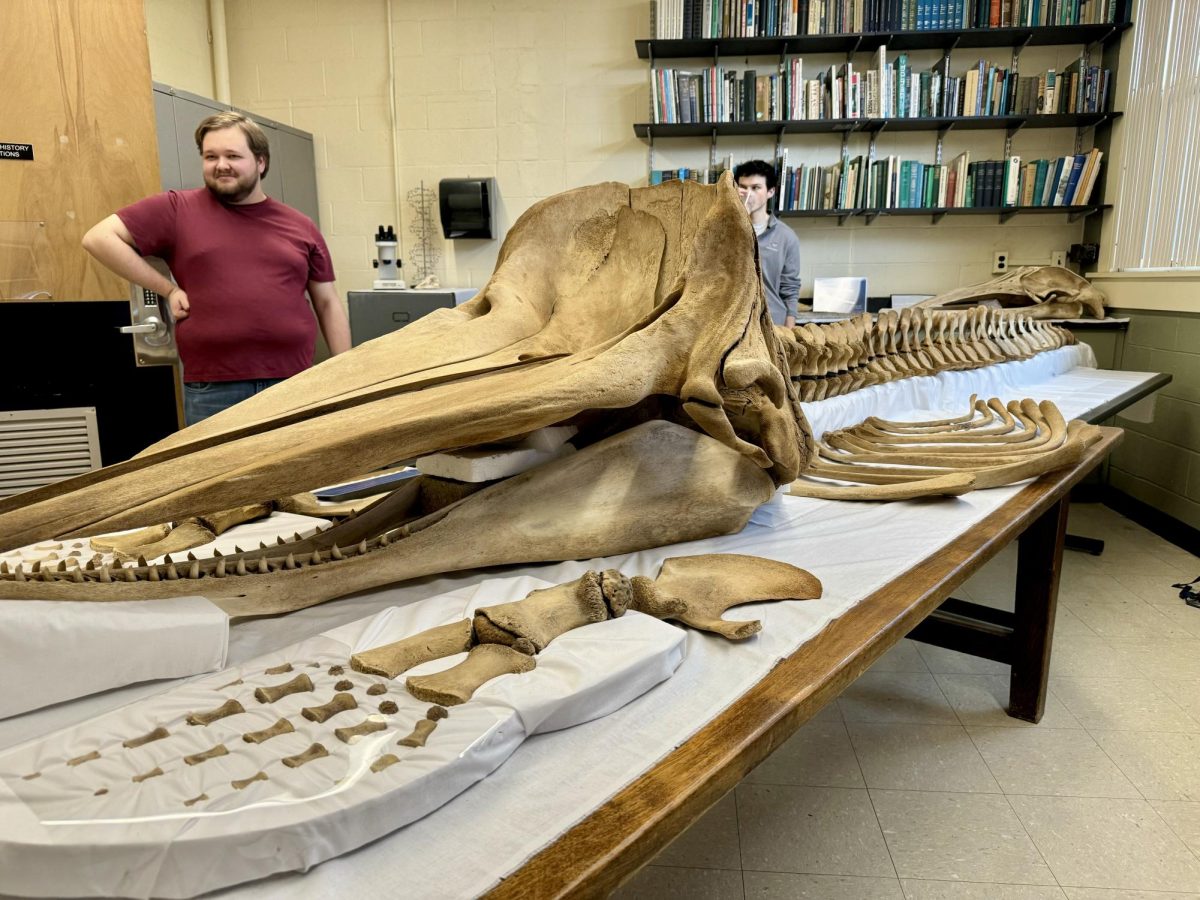Some college students have looked at RateMyProfessors.com, or a similar professor-rating website, while picking classes, hoping to avoid the hard-grader or longwinded whisperer. However, after recent studies and changes to university policies around the country, there are some students who are questioning the accuracy of sources.

In the past 10 years, several teacher evaluation sites have surfaced on the web. Sites such as pick-a-prof.com, professorperformance.com and the aforementioned ratemyprofessor.com give students the opportunity to both evaluate their teachers and see what others have thought of potential professors. “A student no longer needs to physically know people who have had a particular professor – knowledge is only a click away,” said a study by Jeannette Kindred and Shaheed Mohammed.
“While most universities conduct teacher evaluations, the results of these end-of-semester critiques are generally not made available to students,” the study continued. Therefore, students have taken to the Internet for these candid evaluations.
John Swapceinski, founder of RateMyProfessors.com, was quoted in an article saying, “students are demanding more information because they see themselves as customers who want the most value for their dollars.” The paper was titled “He Will Crush You Like an Academic Ninja!: Exploring Teacher Ratings on RateMyProfessors.com” and was published in the Journal of Computer-Mediated Communication.
University of Massachusetts Lowell professor of mathematics Stephen Pennell, whom last year was voted by students on ratemyprofessor.com as the fifth best professor in the country, said he believes ratemyprofessor.com is a useful tool for students, but not the only tool.
“Talking to other students is the best way to get advice [on professors] but ratemyprofessor.com should be included in your decision making when determining which professor will best suit your learning style,” said Pennell.
However, some students, such as University of Toledo student and Student Government Association Chair of Students Heather Engle, are concerned that these social websites do not give the full picture.
In an effort to better address students’ concerns when it comes to value and picking the right professor for a course, the Toledo’s SGA passed legislation last week which would allow end-of-semester evaluations to be available on the schools website.
“By making professor evaluations done in-class available online, students are able to see more positive feedback as opposed to on websites like RateMyProfessors.com, where students usually only post if they have had the most fantastic experience or the worst,” said Engle.
“A recent study conducted by researchers at the University of Maine, however, has found strong correlations between ratings on RateMyProfessors.com and traditional in-class evaluations,” according to a post on LawProfessors.typepad.com
“I was very happy of course to learn I had been so highly rated. I’m not sure RateMyProfessors.com reflects a complete overall picture but there are definitely problems with in-class evaluations as well. No one source is going to have a completely accurate view, everyone is a little bit biased,” said Pennell.
A similar student from the University of Wisconsin-Eau Claire also suggests the popular service is a more useful indicator of instructor quality. The study found that student motivations for posting are generally moderate and that “few student characteristics differentiate those who post from those who do not post on the website.”
But when it comes to choosing between in-class evaluations or websites like RateMyProfessors.com to better understand professors, freshman Karli Tobias isn’t afraid to try both methods.
“At the end of each semester I rate all of my professors on ratemyprofessor.com, whether they are good ratings, poor ratings or somewhere in the middle. I also fill out the in-class surveys for each professor when they are distributed. The results of both end up being the same, ratemyprofessors.com is just a more fun way to do it,” said University of Massachusetts freshman Karli Tobias.
“Ratemyprofessors.com, which began in 1999, is the largest online destination for professor ratings, with more than 7,500 schools and over 13,000,000 entirely student-generated comments and ratings,” according to RateMyProfessors.com. It is averaged that over 3 million college students per month visit RateMyProfessors.com.
Alexa Harrison can be reached at [email protected].
—
Correction (2/8/12): After an in–house review conducted by our news staff, The Massachusetts Daily Collegian found the author of an article titled “Study finds ratemyprofessors.com to be an accurate teacher evaluation,” published on Feb. 3, failed to attribute several pieces of information within the contents of the piece. The Massachusetts Daily Collegian does not distinguish between ‘unintentional plagiarism’ and ‘intentional plagiarism.’ Plagiarism in any form is unacceptable. Internal actions have been taken by The Collegian’s editorial board. The Daily Collegian sincerely apologizes to the campus community and to the sources that were not attributed and credited properly. The Collegian’s editorial staff is in the process of exploring new methods to prevent this from occurring again in the future.
Here is the breakdown of improperly attributed sections of the article:
The article originally stated “A student no longer needs to physically know people who have had a particular professor – knowledge is only a click away” and “While most universities conduct teacher evaluations, the results of these end–of–semester critiques are generally not made available to students.” These statements should have been attributed to Jeannette Kindred and Shaheed Mohammed’s study “He Will Crush You Like an Academic Ninja!: Exploring Teacher Ratings on Ratemyprofessors.com.”
The article also stated “John Swapceinski, founder of ratemyproffesor.com, explained, ‘students are demanding more information because they see themselves as customers who want the most value for their dollars,’ in a paper titled ‘He Will Crush You Like an Academic Ninja!: Exploring Teacher Ratings on RateMyProfessors.com,’ published in the Journal of Computer-Mediated Communication.” Swapceinski was quoted as such in the study, but did not write it as implied by the article.
The article further stated that “A recent study conducted by researchers at the University of Maine, however, has found strong correlations between ratings on ratemyprofessors.com and traditional in-class evaluations.” This sentence was taken almost verbatim from a Nov. 22 post on lawprofessors.typepad.com.
The article included the sentence “Ratemyprofessors.com, which began in 1999, is the largest online destination for professor ratings, with more than 7,500 schools and over 13,000,000 entirely student-generated comments and ratings.” This information was taken without attribution from Rate My Professor’s web site.


















